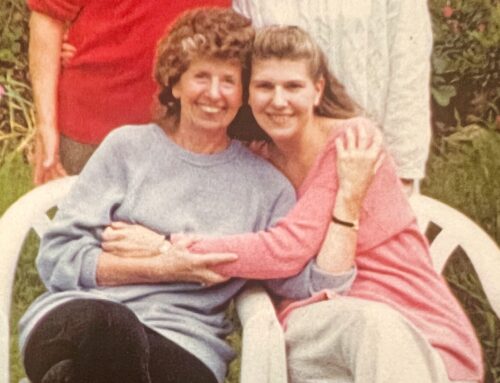In our last blog we talked about our individual ‘Christmas movies’. The scripts or patterns it’s easy to find ourselves falling back into when we’re around people who push our buttons and are hard to forgive.

It’s one thing to let go of little slights or lapses of judgment. However, when we’ve experienced the same behaviour for years, it can feel impossible to forgive them and move forward.
If, despite your best intentions, you’re looking back on some of your interactions in the past weeks and feeling unhappy with what occurred, read on. Like a shot of espresso, it’s time to bring clarity to the emotional hangover and find out how we can shift the conflicts that linger, once and for all.
When you can’t forgive
At War to Peace® we believe in looking at the underlying way we’re being; considering our “operating system,” which determines how the things we say and do come across.
And when we look back on interactions that we’ve felt disappointed with, something curious emerges. The operating system that we use to look back on what went wrong can be oddly similar to the conflict we’re wishing was different.
For example, the operating system of “I wish you were different” applies to the other people who have riled us up. But it also comes out when we criticise ourselves for the things we didn’t say, or the way we behaved.
However badly someone else has behaved, the person I’m usually equally struggling with is me. Either for what I did do (got triggered, flew off the handle, gave into their demands) or what I didn’t (tell them what I really thought, stood up for myself, apologised…)
This is how we manage to continue to be at War long after a challenging interaction with someone. Our sense of injustice and annoyance continues into the way we remember them. Even the way we talk to ourselves and others about what happened, can build the conflict for when we next see them.
Changing the system
So how can we move past this mindset? Are certain deep-rooted conflicts destined to be in our lives forever?
When we’re not ready to forgive and forget, it can seem as though there’s no way out of the situation. And if we believe that the only way to feel better is for the other person to do something – like apologise, change their actions, or admit they’ve behaved abysmally – that might well be true. Try as we might, there’s nothing we can do to change other people. This is what lays at the heart of our difficulty with the people we find so challenging. The amount of time and energy we have dedicated to this, either in practical terms or with the amount of space we let them occupy in our minds.
What we can do to shift things is to start with what is within our control. And, whilst we typically allow ourselves to cling on to the thoughts we’re having about them, our own mindset is something we do have control over. And if we can begin to move that, even by a tiny notch, we open up space for things to be different.
Let yourself off the hook
So if there’s a sticky scenario leftover from Christmas that’s been playing on your mind, we can start by focusing our attention back to us:I invite you to the possibility that you behaved the best way you could, given the situation, all the circumstances and in light of the history or any emotional baggage you carried in to the interaction.
Might it be possible to let yourself off the hook, just a little? After all, you did your best in that moment. In a perfect situation, things might have been different. But this is real life and one thing our relationships never are is perfect. It’s also worth noting that you probably hadn’t eaten as healthily as you would typically. You may not have had as much good quality sleep and you may have had more alcohol than you would typically. All of which tend to result in us having less emotional resilience and tolerance.
It’s also the time of year where we typically feel we should be with our family members and close friends, and all our made up ‘shoulds’ about how it’s meant to be are playing out, which can pile on the pressure. So perhaps it’s time to forgive yourself if you are feeling in any way self-critical.
On the other hand…
If, on the other hand, you truly believe you were perfectly behaved and it really is all them, perhaps you could spend some time imagining what might be going on for them that led them to leave behind their best self over the holiday period. Perhaps you don’t know their whole life circumstances at the moment. Perhaps they are burdened by some unimaginable stress that you know nothing of and they don’t feel able to share it with anyone yet. It’s perfectly okay if you are not ready to forgive them yet. But perhaps you could consider that even though it feels really personal and you have all the evidence in the world that it is, it’s only about you if you allow it to be.
We can never know exactly what another person is going through. What triggers they are experiencing or how hard they are trying to overcome their own inner battles. So, without any knowledge to the contrary and even though they fell short of your expectations, perhaps they did the best they could under the circumstances, too.
Looking at what’s ours to change
If this feels like you’re letting someone off the hook, it actually isn’t – it doesn’t mean you’re condoning anything they’ve said or done, it just means you’re freeing yourself from the burden of resentment. This isn’t about condoning poor choices, or letting people get away with things.
Rather, it is an invitation to focus on the things that are within our control. To take back our own power and to maintain our integrity (by our own definition of what this is for ourself) with whomever we find ourselves interacting.
This is the starting point of the simple strategy we cover in the War to Peace® workshop. If you haven’t yet participated, we’d love to welcome you to one of our open access sessions so that you can dive deeper into the power of this approach to transform relationships at work and at home.
Having the tools to change our operating system means we can set ourselves up to succeed rather than fail. Relationships with even the most difficult people – like family members who we know are never going to change, or colleagues who really push our buttons – can shift drastically with this change in mindset.
It allows us to access resources that just aren’t available when we’re stuck on the same old script – and can result in utterly unexpected turnarounds.
A simple way to change
War to Peace® is a very simple process, but it’s award winning for a reason. If you’re ready to experience how to move past challenging relationships once and for all, the first open access workshop of 2018 is on 2 March.
Our workshops sell out fast so we suggest you book now if you know this is something you’d like to achieve this year! Click here to find out more and book your place.
And to be the first to hear about our new workshop dates, sign up for our monthly blog posts containing tips and strategies for your relationship challenges.
P.S. pass it on!
If you know someone who might find this article helpful, let them know. Share it by using one of the buttons below.
Photo via Unsplash







Leave A Comment